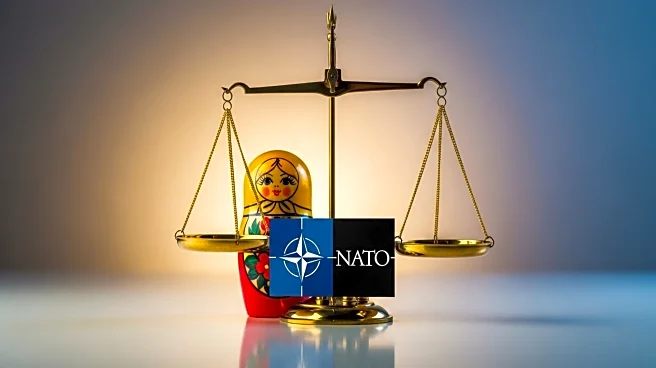What's Happening?
President Trump announced his readiness to impose significant sanctions on Russia, contingent upon all NATO countries agreeing to take similar actions. This statement was made on Saturday, emphasizing the need for a collective pause on oil purchases from Moscow. The move is seen as a response to Russia's recent geopolitical maneuvers, and Trump’s call for unity among NATO members highlights the strategic importance of a coordinated approach to sanctions. The announcement comes amid ongoing tensions between Russia and Western nations, with energy trade being a critical point of leverage.
Why It's Important?
The potential sanctions could have significant implications for international relations and the global energy market. If implemented, these sanctions would aim to pressure Russia economically, potentially affecting its oil revenue, which is a substantial part of its economy. For NATO countries, this move could strengthen alliances and present a unified front against Russian aggression. However, it also poses risks, such as potential retaliatory measures from Russia and economic impacts on countries heavily reliant on Russian energy. The decision underscores the delicate balance of maintaining diplomatic pressure while managing economic dependencies.
What's Next?
The next steps involve diplomatic discussions among NATO members to reach a consensus on the proposed sanctions. The outcome of these talks will determine the extent and impact of the sanctions. Additionally, monitoring Russia's response will be crucial, as it may influence future geopolitical strategies and alliances. The situation remains fluid, with potential developments in international diplomacy and economic policies.










